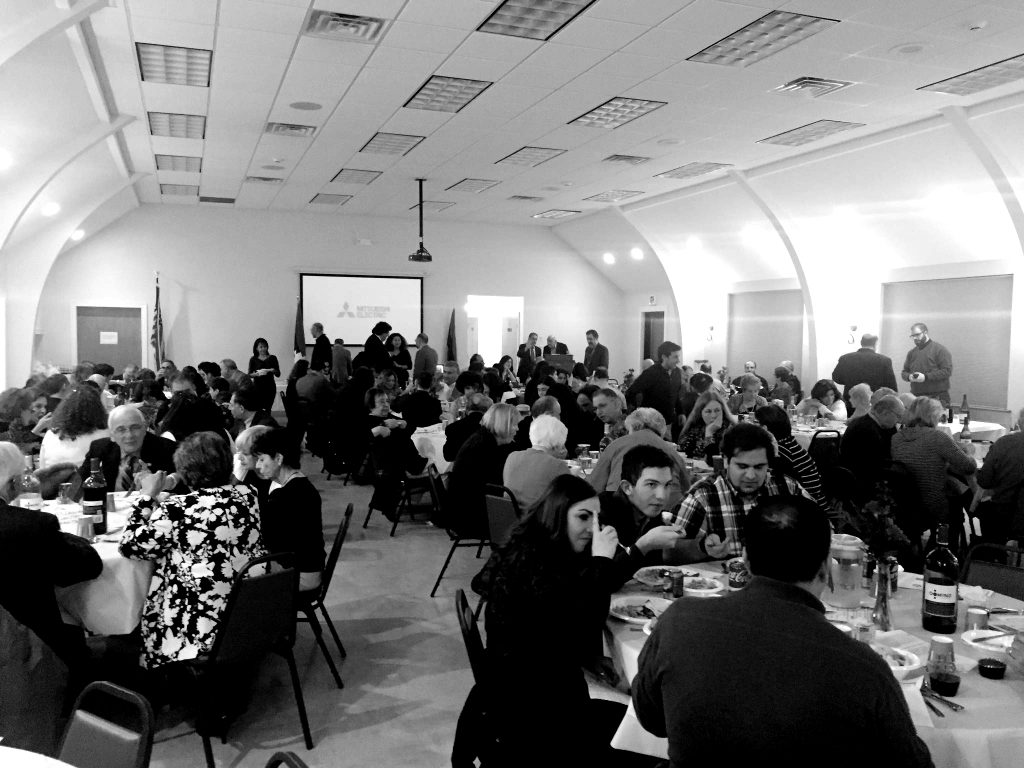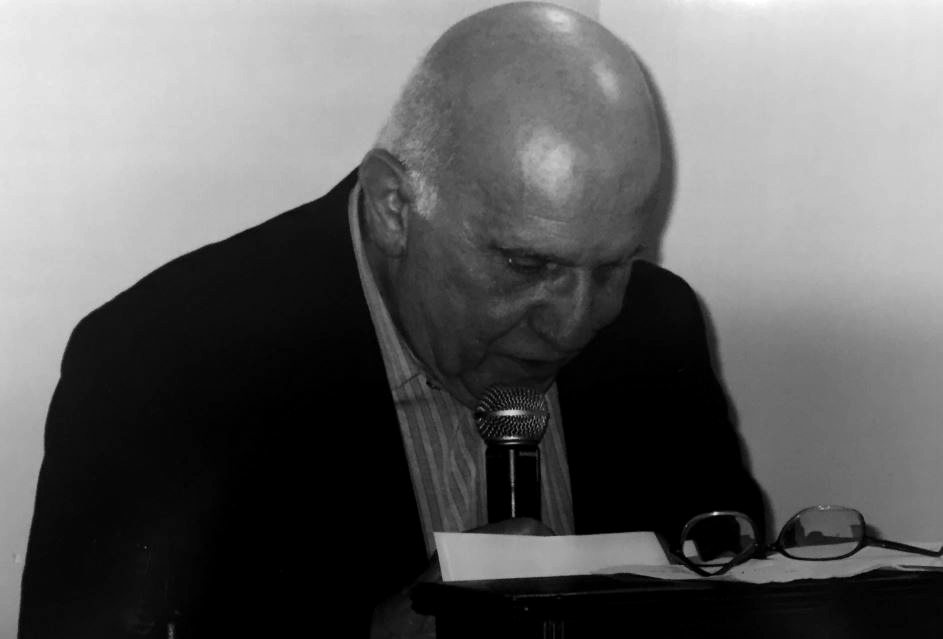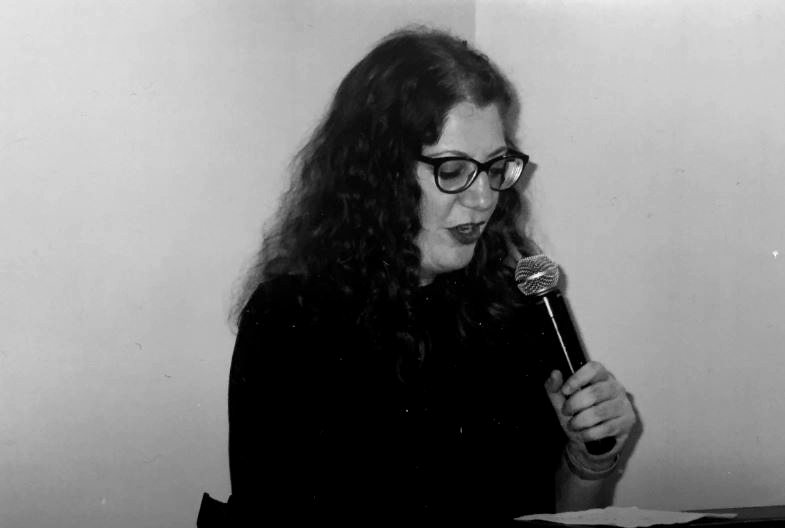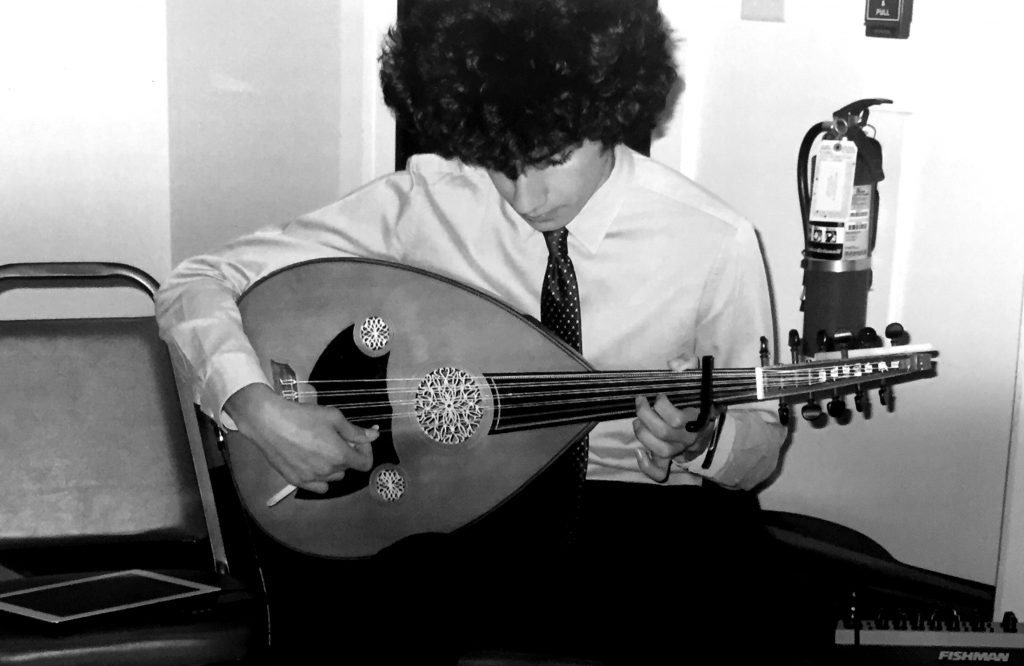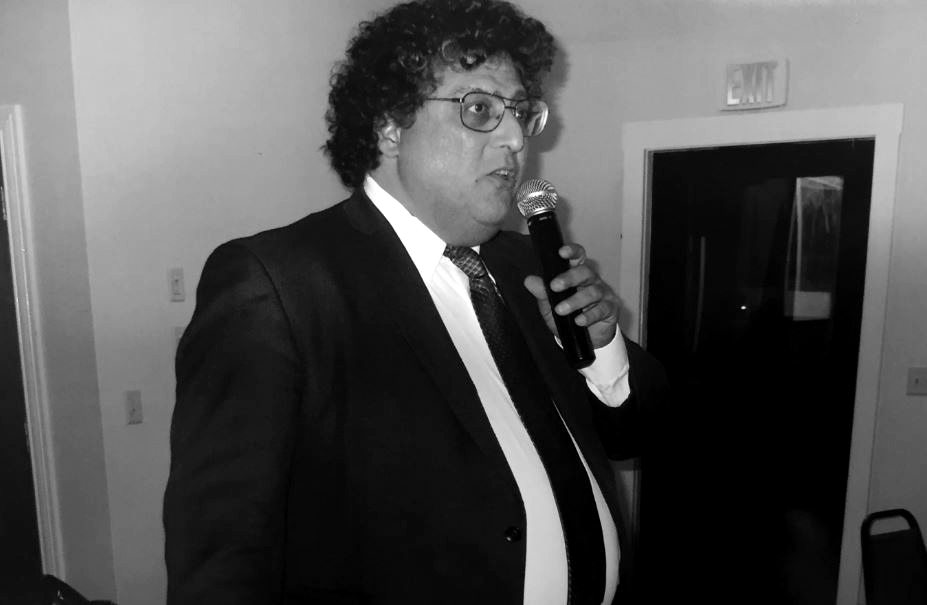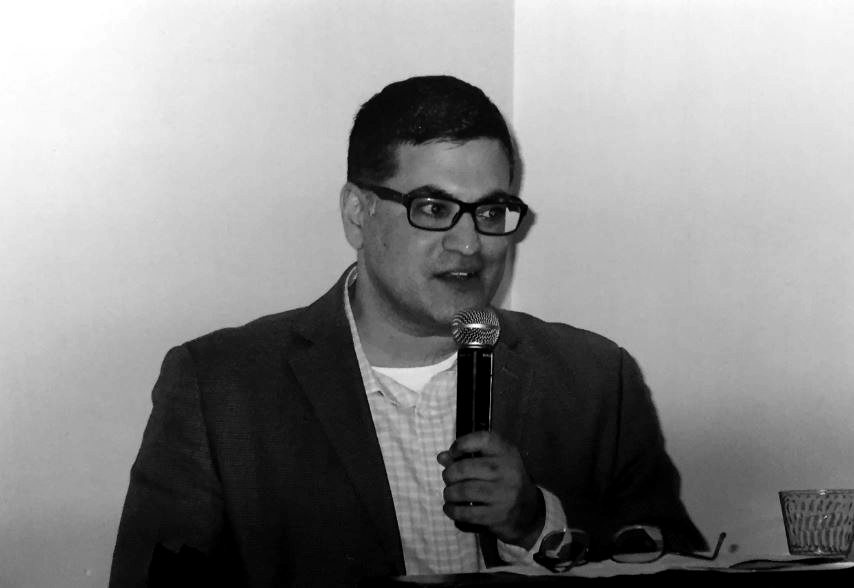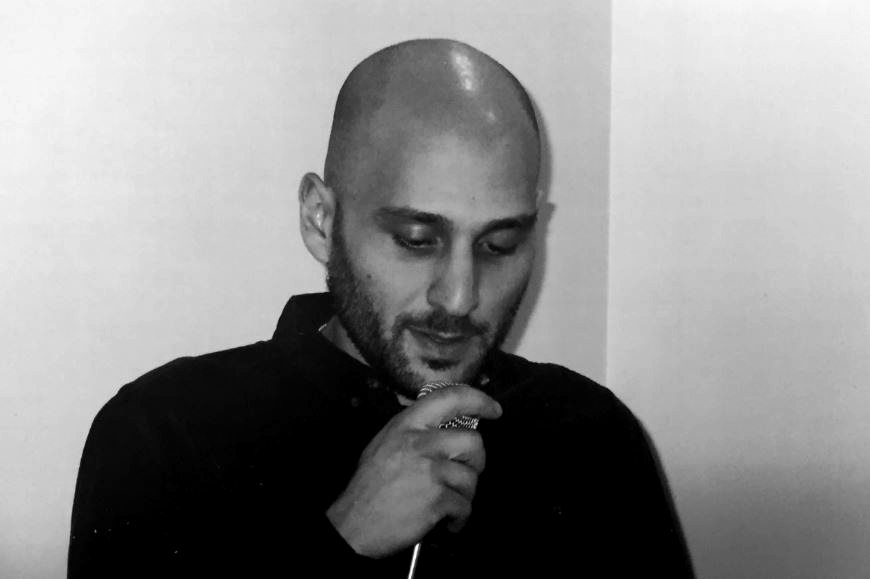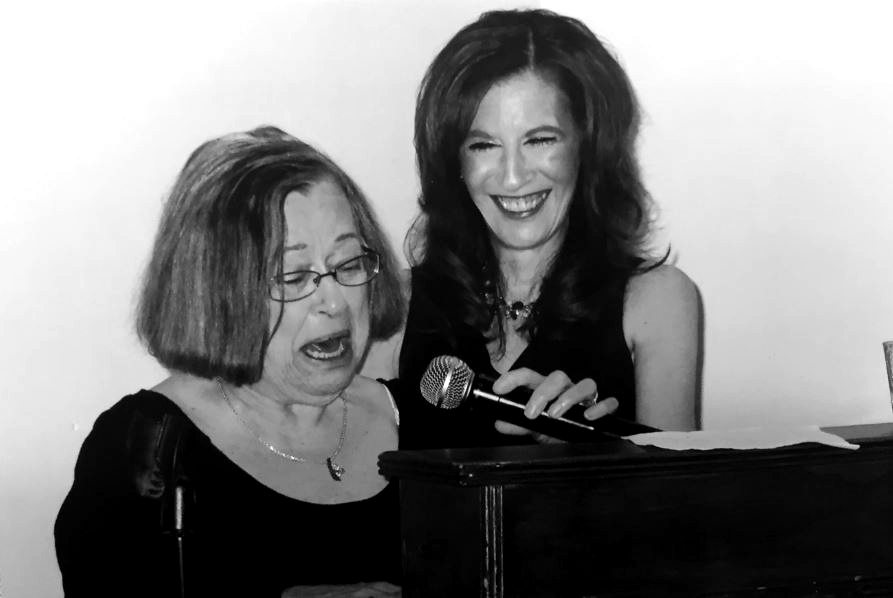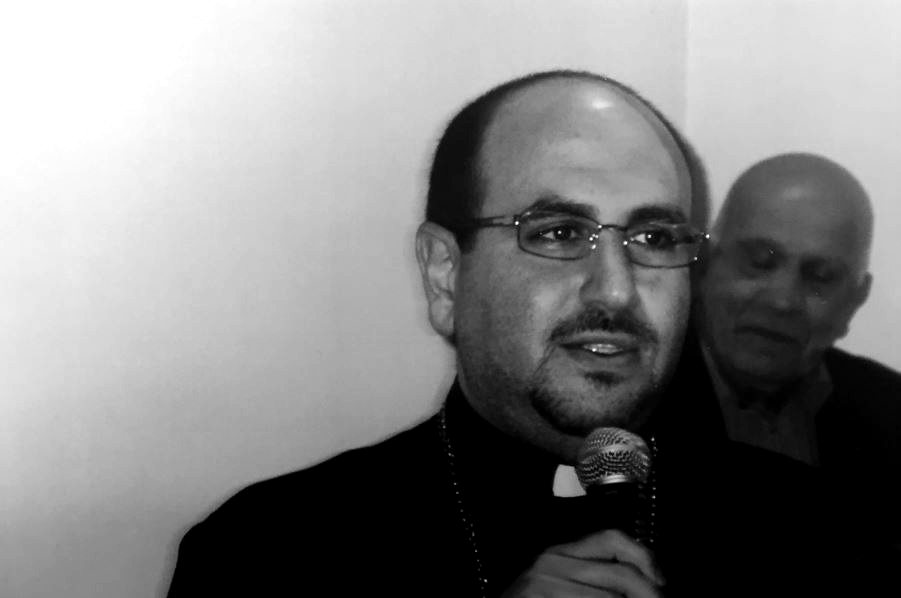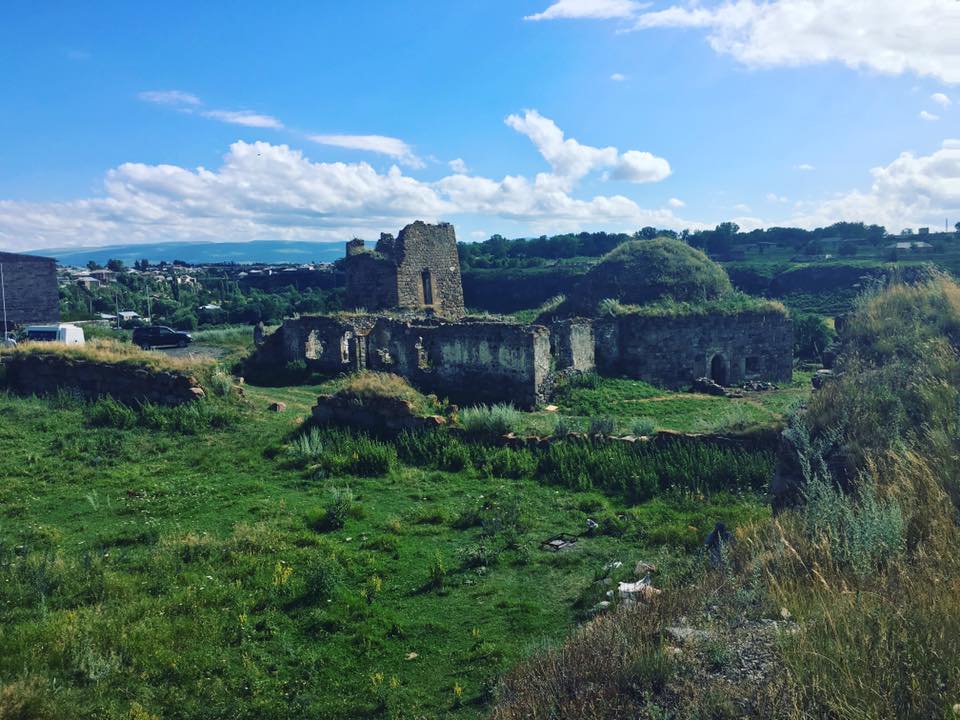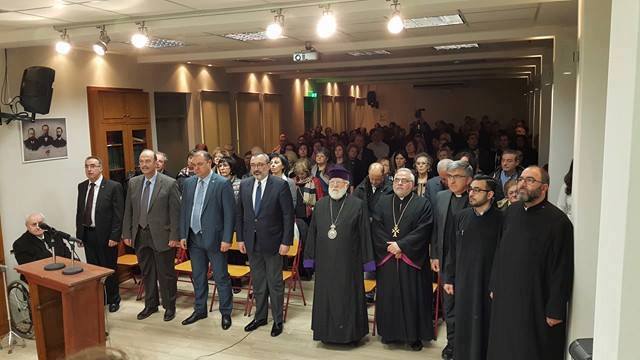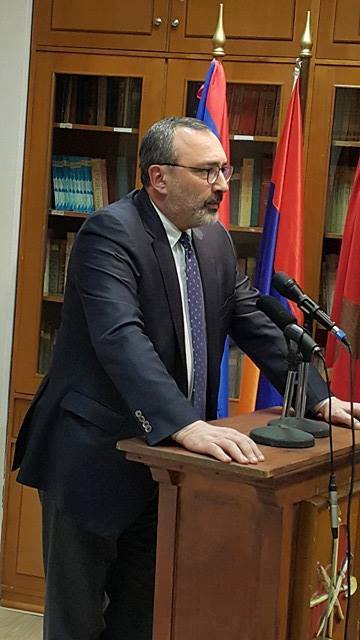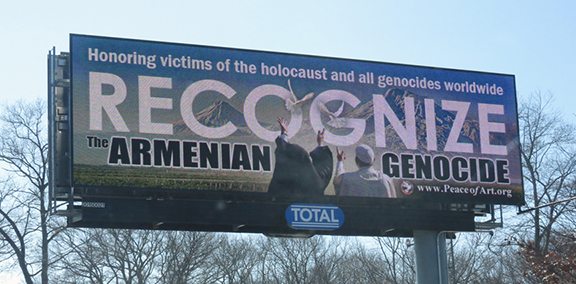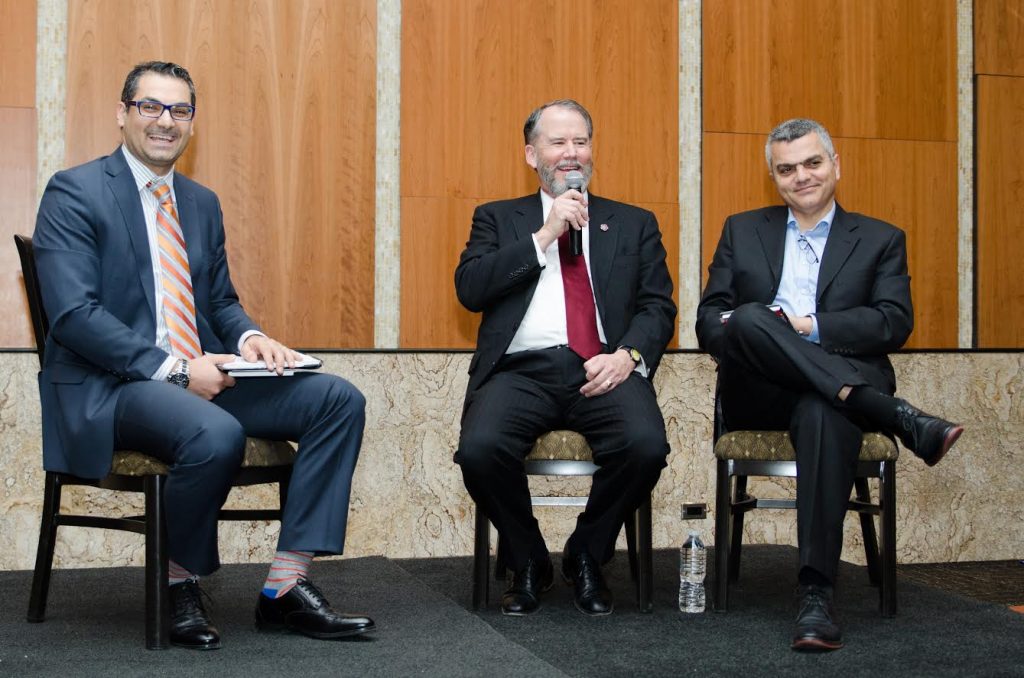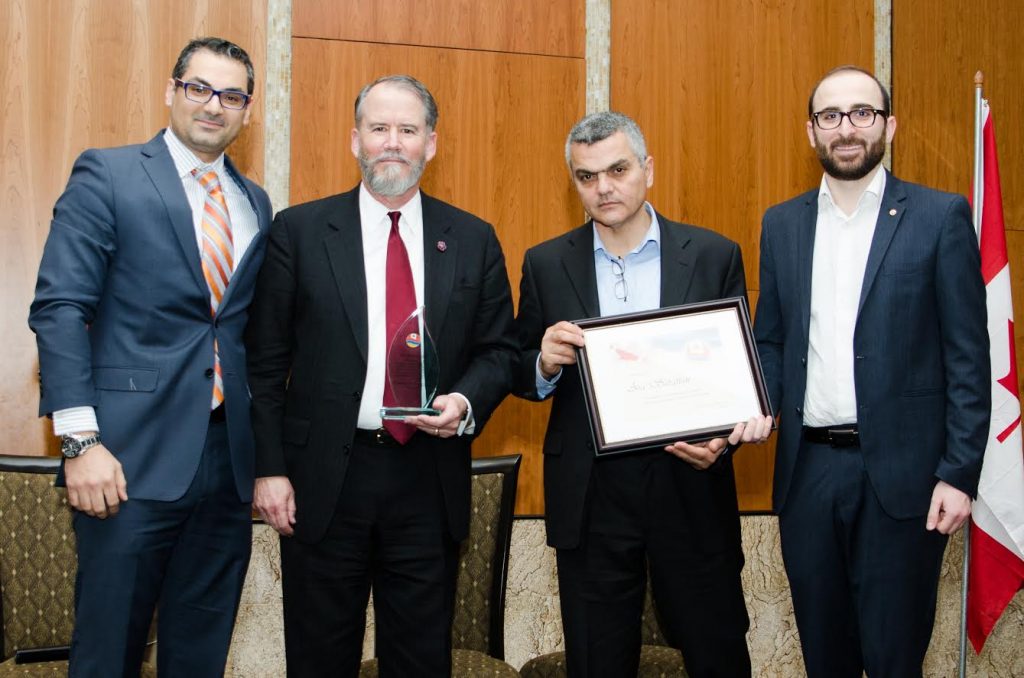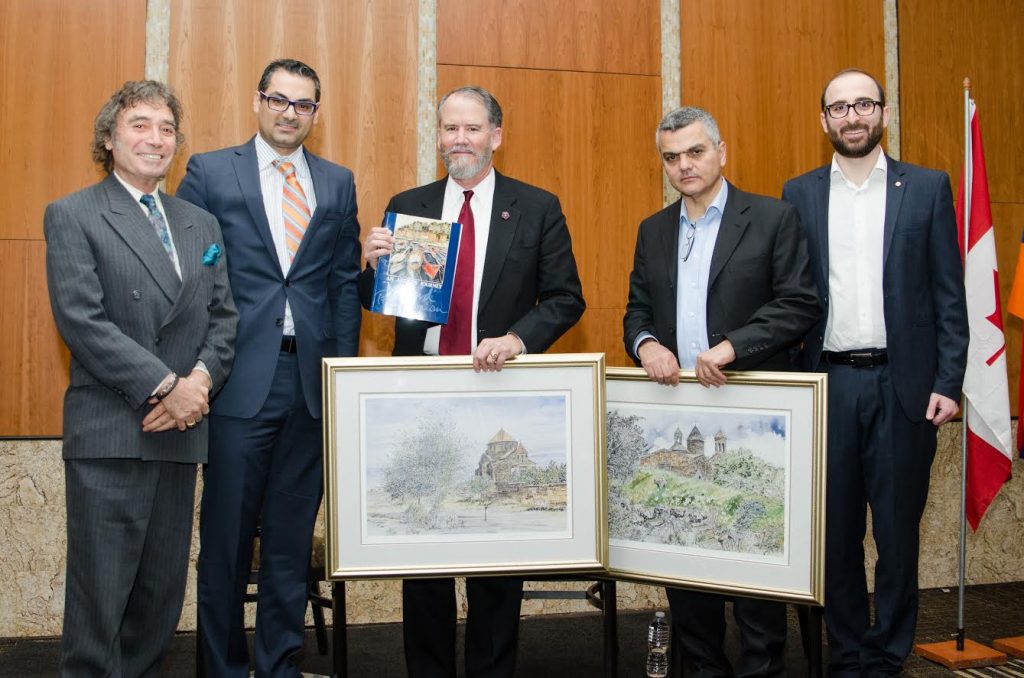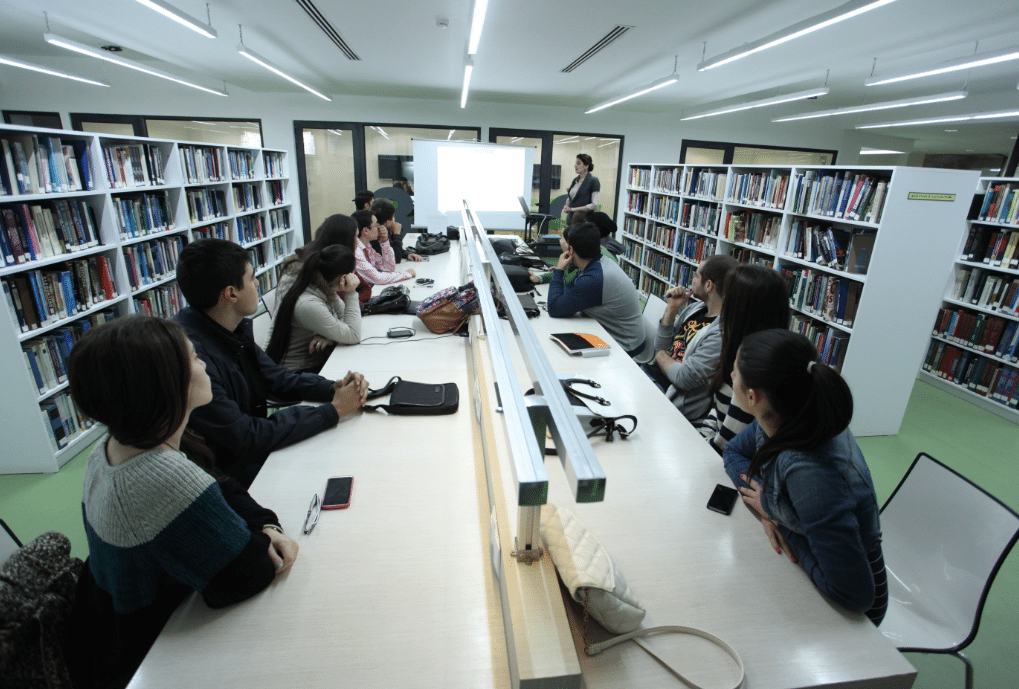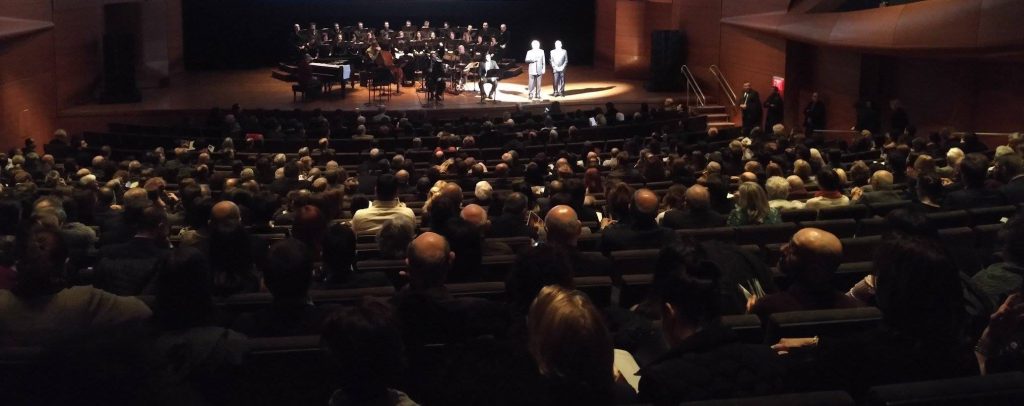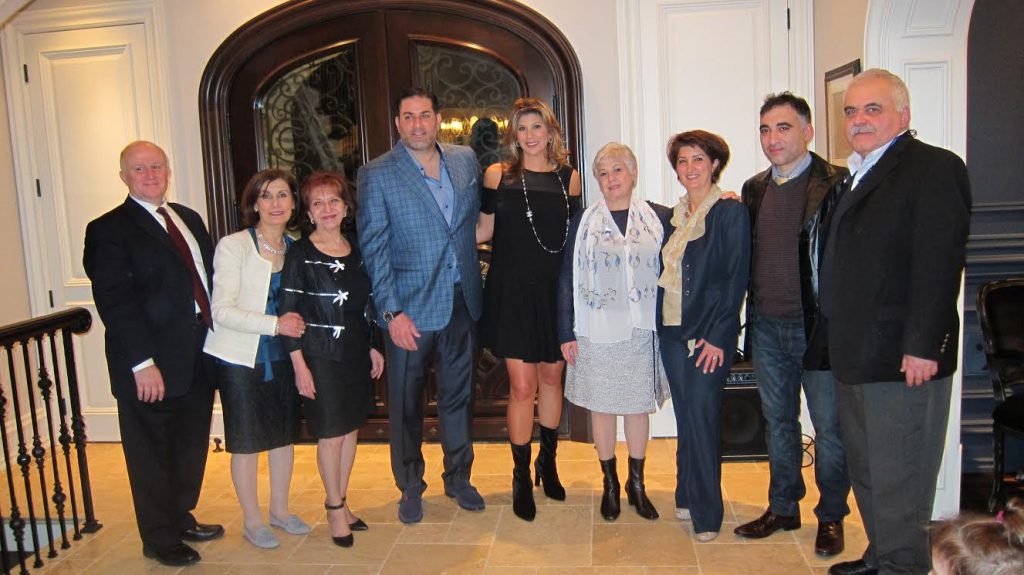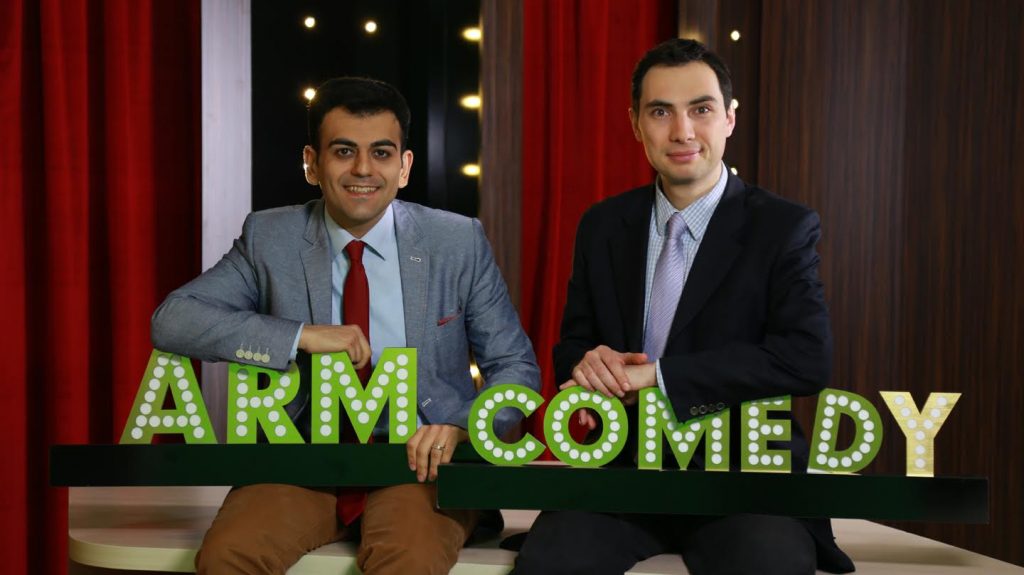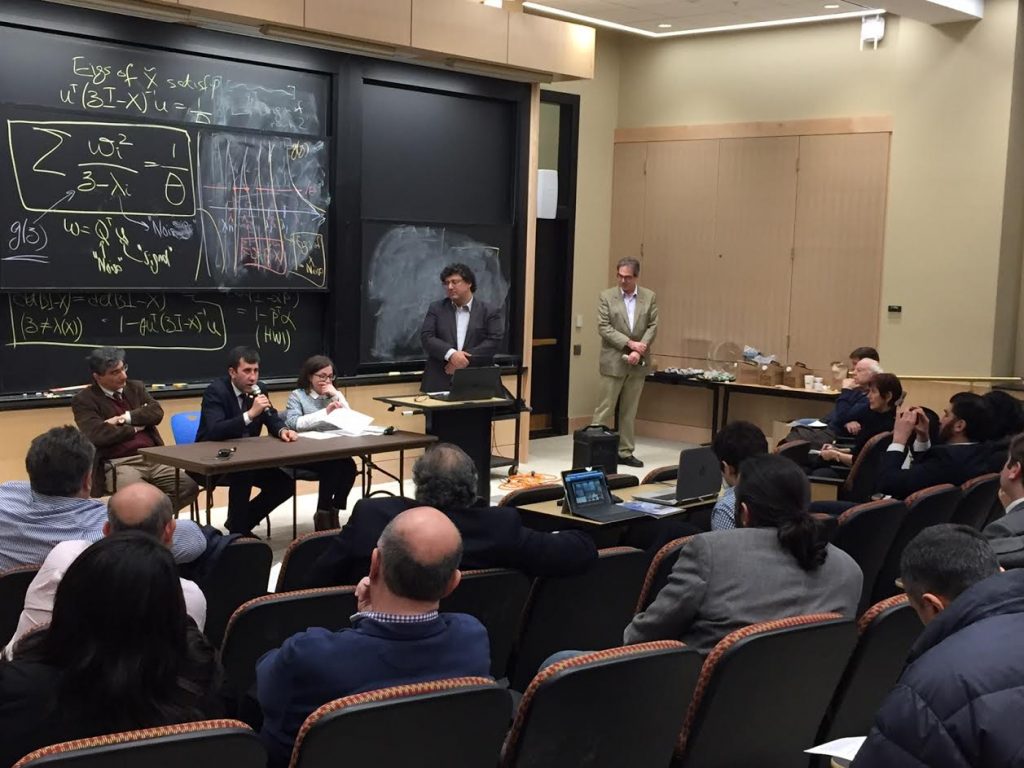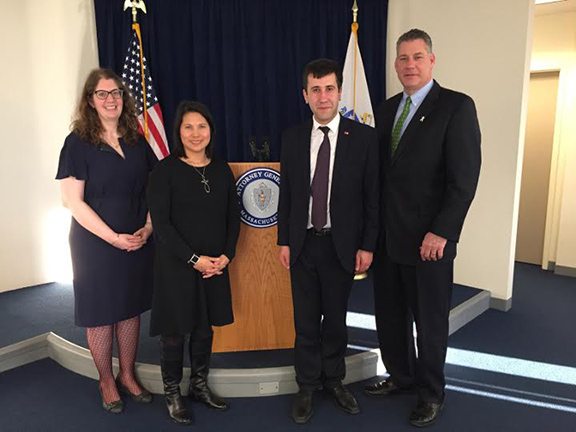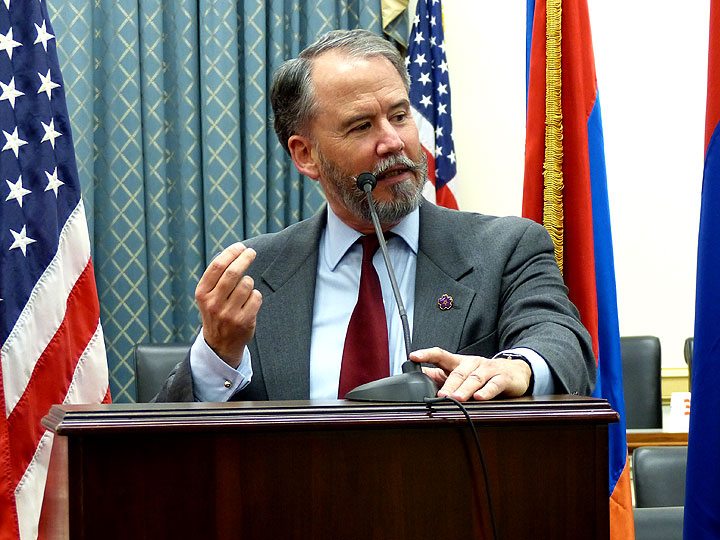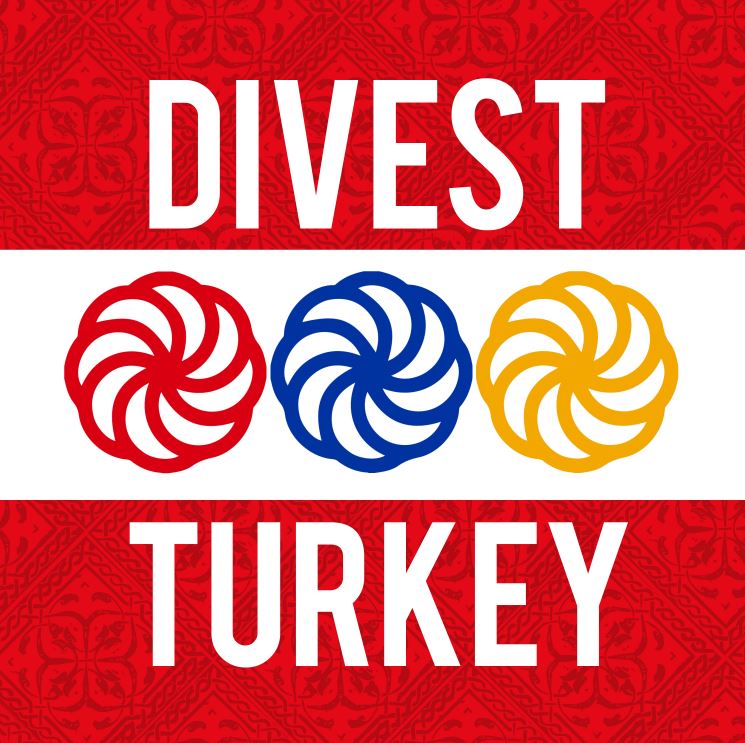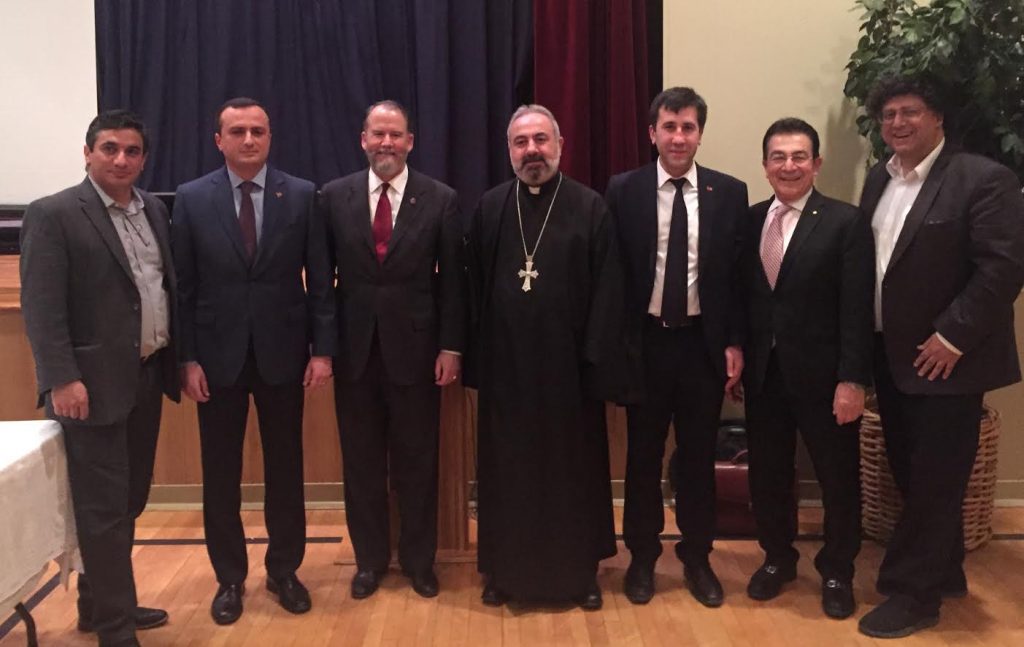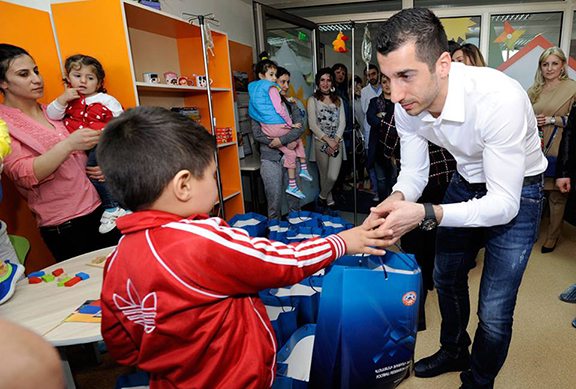NORTH ANDOVER, Mass. (A.W.)—More than 150 people packed the Jaffarian Hall of the St. Gregory Armenian Apostolic Church of North Andover on March 4, to celebrate the 122nd anniversary of the Armenian Revolutionary Federation (ARF) Lowell Aharonian committee and to pay tribute to longtime Armenian Weekly columnist, an award-winning Haverhill Gazette writer-photographer, and dedicated Armenian community activist Tom Vartabedian.
Aharonian gomideh chair and the evening’s Master of Ceremonies Aram Jeknavorian opened the evening’s program by inviting Rev. Father Stepan Baljian, Pastor of the St. Gregory Armenian Apostolic Church, to lead the attendees in prayer. After blessing the tables, Rev. Baljian said a prayer in Vartabedian’s memory.
Following the invocation, attendees sang the National Anthems of the United States and Armenia. Welcoming remarks were then delivered by Jeknavorian, during which he gave a brief history of the Aharonian committee—the first ARF committee in North America.
“In a letter dated Sept. 24, 1895, the [ARF] Bureau gave a group [in Lowell] the authority to start their activities,” explained Jeknavorian. “Two other letters, dated Oct. 8 and 18, 1895, informed [ARF party organ] Droshak the formation of units in Lowell, Lawrence, Haverhill, Providence, and Fall River… Shortly thereafter, one year late, the ARF had its first Convention in Lowell… In his letters to Droshak, Garabed [Avedissian, unger in Secretary in the U.S.] wrote, ‘The Armenian people opened their eyes, looked around, and saw an incorruptible organization true to its beliefs, accepting responsibility for the sake of freedom and for the joyous day of justice and popular democracy that is to come in Hayastan.” Jevnavorian then went on to explain how the Aharonian committee got its name after the death of prominent Armenian political leader, writer, and activist Avetis Aharonian.
Jeknavorian then made a toast to the late Tom Vartabedian on behalf of the Aharonian gomideh, the area’s Armenian organizations, as well as Tom’s family and friends “To Tommy’s 50 years of service. A loyal unger, who asked for no rewards; who maintained a high level of service within the community; promoted unity, reconciliation, high moral values, and most importantly friendship. Everything you would want in an unger, a friend, and a buddy. To Tom,” Jeknavorian said, as the crowd held their drinks high.
After dinner was served and enjoyed by those in attendance, Dr. Ara Jeknavorian of the Armenian Genocide Education Committee of the Merrimack Valley delivered a presentation entitled “Tom’s Mission for Genocide Education,” during which he explained Vartabedian’s dedication to educating both Armenian and non-Armenian youth about the Armenian Genocide.
Through photos and slides, Dr. Jeknavorian detailed the work Vartabedian and others have done over the years within the public school system in the Merrimack Valley. “The group was formed about seven years ago by Tommy, the late Albert Movsesian, and Dro Ganayan. They observed that even though we have a State Law that says that you shall teach the Armenian Genocide in schools, they found that in reality, the Armenian Genocide was truly a forgotten Genocide… I feel very honored that three years ago, when I retired, Tommy asked me to be a part of the group,” Jeknavorian explained. He went on to detail how the group has visited over 30 schools and taught several hundreds students about the Armenian Genocide. The crowd was then invited to read aloud Vartabedian’s “Pledge to Make a Difference”—something that he would have students do, after they learned about the Armenian Genocide:
“I pledge to try to make a difference in the lives of others. I pledge to stand against intolerance, prejudice, discrimination, and hate, and to promote greater understanding and acceptance. I recognize that even small acts of kindness can have a big impact on others. I pledge to be the change.”
Armenian National Committee of America – Eastern Region (ANCA-ER) Board member and associate director of Project SAVE Armenian Photograph Archives Tsoleen Sarian then delivered remarks on behalf of the ANCA-ER. “I am thankful for Tommy’s enthusiasm, constant encouragement, and positive attitude. In his role as an outspoken leader, he elevated all those around him, especially the youth. He shined light onto other people’s projects and activism. He built coalitions and brought people together, because unified, our voice is stronger. I admire him for his hard work. He was participating in so many organizations, and always made teaching the Armenian Genocide in local schools and colleges a priority. Our community is stronger, thanks to Tom Vartabedian.” Sarian said. She then provided a detailed update of the ANCA-ER’s activities and outlined ways the community can get involved in the organization’s activities.
Following Sarian’s remarks, Armenian Youth Federation (AYF) Bedford chapter member Datev Gevorkian performed a musical selection of three songs on the oud, dazzling members of the audience.
ARF Eastern U.S. Central Committee member Antranig Kasbarian then delivered remarks on behalf of the Central Committee. “Many of us Dashnaktsakans (ARF members), we wear our nationalism on our sleeves, and sometimes we’ll clobber you with our nationalist ideology. Tom also was an ardent patriot. But his nationalist ideology actually wove its way through discussions and wove its way through his writings and his columns. He often tied our cause to larger issues of human dignity, of cultural awareness, or just reflections on the human condition and the absurdity of life. Always, that nationalist ideology was a part of a wider humanism that really represents the love of life, and for that I am really proud to have known him as a friend and as an unger,” Kasbarian said.
Following Kasbarian’s remarks, deputy director of the Armenia Tree Project (ATP) and former Armenian Weekly editor Jason Sohigian shared his reflections about Vartabedian’s life and legacy. “My strongest memory while working with Tom Vartabedian at the Armenian Weekly was him telling us and reminding me to focus on the local, on telling people’s stories and about our local community. And while many of us were often with our head in the clouds, dealing with politics, Artsakh (Nagorno-Karabagh), and the genocide issue—day in and day out—Tom reminded us to remember to keep the Armenian-American community alive. It’s not that he didn’t have the political or historical awareness—he really understood the times… But he really understood the importance of the local and telling the stories of the people. And of course, he had great storytelling skills,” Sohigian said, noting that Vartabedian wrote in the simple, light, enjoyable, and everyday style of a William Saroyan. “Publically, Tom referred to me as his editor, which was humbling, but somehow could never sit right with me and I never could correct him. It felt very overstated to me, because Tom was such a seasoned pro and such an accomplished columnist,” Sohigian said.
Rupen Janbazian, the current editor of the Armenian Weekly, then spoke about Vartabedian’s legacy as a longtime Armenian Weekly columnist and activist in the Armenian community. “The ARF was an integral part of Tom’s life—a pillar, through which he advocated for justice for the Armenian people,” Janbazian noted, before reading his editorial for the Armenian Weekly, written the day after Vartabedian’s passing. “On behalf of everyone at the Armenian Weekly and the Hairenik Weekly, including the editors and the staff, I would like to thank you for being here to honor a man, who will be greatly missed not only by this community, but by Armenian communities around the world,” Janbazian concluded.
Following Janbazian’s remarks, Vartabedian’s widow Nancy and daughter Sonya thanked those in attendance on behalf of the Vartabedian family. “I’m sure Tom has been listening today and has a smile from ear to ear on his face,” Nancy said. “I know many of you here had known him well before I had—either through church, the AYF, the ARF, and the Armenian Weekly. He was a very happy person when he was associated with Armenians,” she then remarked.
“On behalf of my mother, my brothers, my entire family, we cannot thank this community of the Merrimack Valley and Greater Boston enough. You have to know that everybody in this room, my father adored. You brought as much joy to him as he hopefully brought to you in his life,” Vartabedian’s daughter Sonya noted. “He loved this community, this church, everything to do with the Armenians,” she added.
Following Sonya’s remarks, Aram Jeknavorian invited Father Stepan, who addressed the crowd on behalf of the St. Gregory Armenian Apostolic Church and offered his benediction. Those in attendance were then invited to conclude the event with the singing of the ARF anthem Mshak Banvor.
All of the proceeds from the event celebrating the 122nd anniversary of the ARF Aharonian committee and honoring Tom Vartabedian’s legacy will be donated to the Armenian Weekly and the Armenian National Committee of the Merrimack Valley—two institutions that were near and dear to unger Vartabedian’s heart.
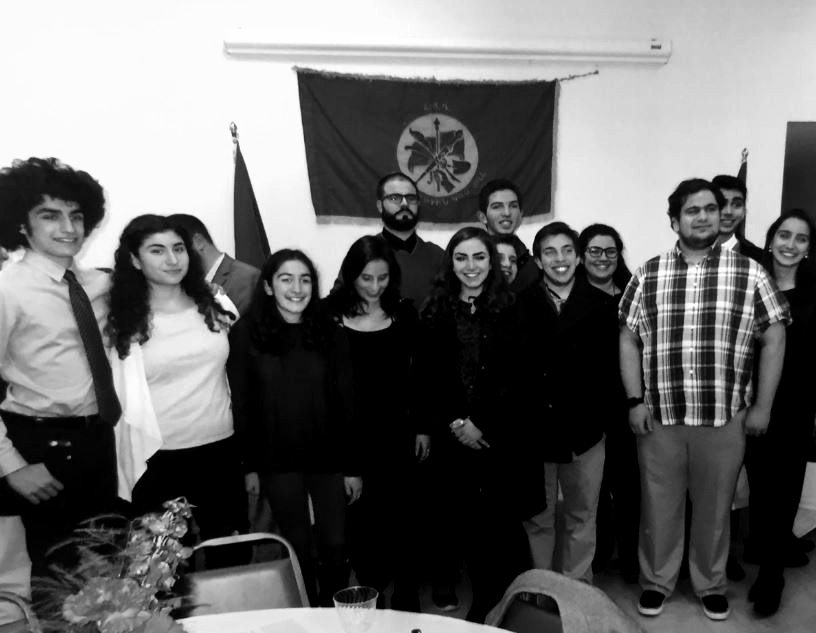
AYF members celebrating the 122nd anniversary of the Lowell ARF and honoring Tom Vartabedian’s legacy (Photo: Stephen Dulgarian)

